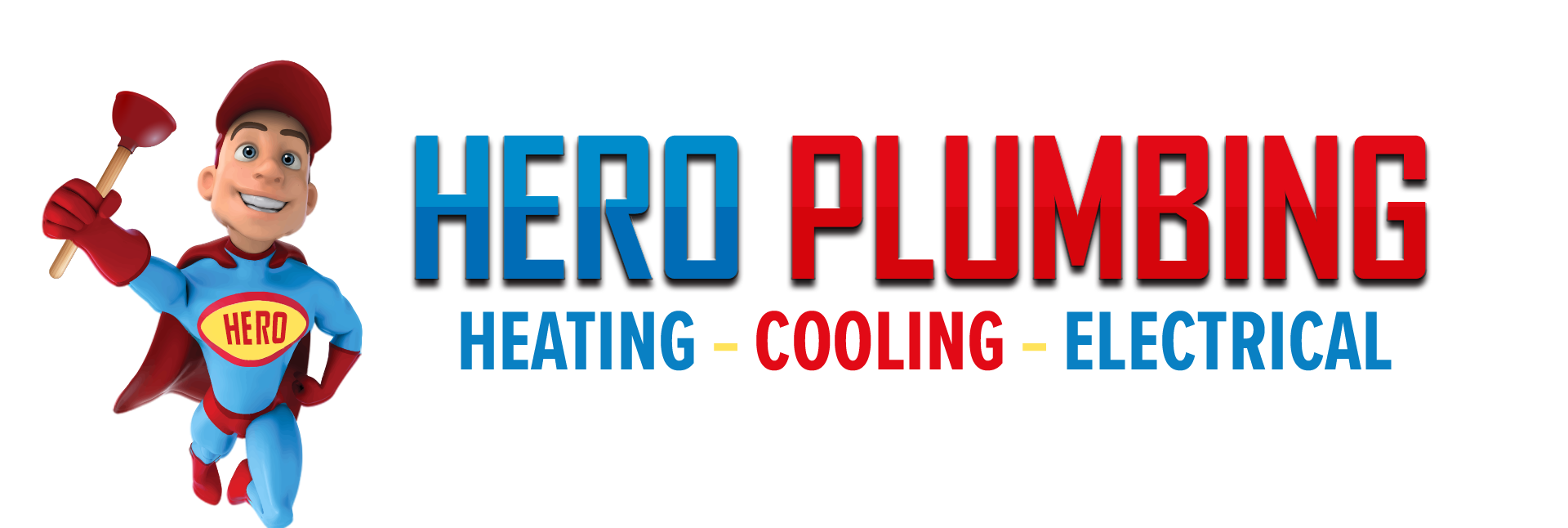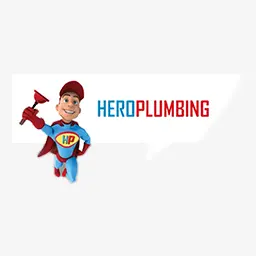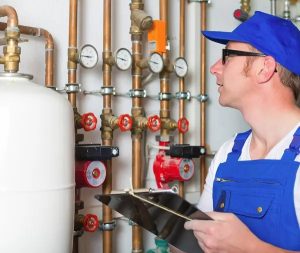Table Of Contents
Solar Water Heaters
Solar water heater problems can delay your day-to-day activities. A hot cup of water or a hot bath to start your day would give you the energy you need to start your workday. But, what if your solar water heater has trouble operating? Here are the details you might need to get to know more about your solar water heater.
How Do Solar Water Heaters Work?
Solar energy is the sun’s energy, which is transformed into electrical and heat energy for the functioning of solar hot water systems. Solar energy is the world’s cleanest and most plentiful form of renewable energy. It is the conversion of energy, whether directly with photovoltaics (PV), indirectly with concentrated solar power, or with a mixture.
Concentrated solar power systems are used to concentrate a vast region of sunlight in tiny beams using mirrors or lenses and solar monitoring devices. A solar-powered heater is an assembly of solar panels, compressors, control systems, insulated storage tanks, and pipelines.
The solar panels are positioned to capture and convert the most solar energy for free. The heat is then captured by water and kept in storage tanks for the shower, washing machine, and clothes washing applications. They are completely safe since they come with solar glass panels and temperature relief valves to regulate water pressure and temperature.
Moreover, they are fitted with pressure relief valves. In addition, the system includes a circulating pump for the circulation of water from the solar panel to the storage tank in the system. As components of the solar water heating system are typically exposed to the weather, protection from overheating and freezing is necessary.
Importance Of Solar Water Heaters
Solar water heaters in a home are an essential element. They constantly provide hot water with free solar energy for home or business usage both efficiently and economically. The system uses collectors to gather solar energy, placed strategically on a building roof and orientated to optimum performance.
The dependability and longevity of solar water heaters worldwide today include excellent concepts, ready-made layouts and kits, and sophisticated controls. If your water heater begins to break down and you want the cost to be minimal, you will need a basic understanding of solar thermal repair.
Solar water heaters, like other solar-powered equipment, may cause problems as time goes and components deteriorate. As a homeowner, you will need to become accustomed to the typical issues generally associated with solar water warmers, including troubleshooting.
When you have just installed your solar water heater, be aware that frequent inspection and maintenance are required to maintain the system effectively and keep it functioning for years to come.
Different Types Of Solar Water Heaters

Integral Systems
This is a passive system with a thermosiphon utilised in areas with many sunny days and high hot water requirements. They are simply constructed with one or more black tanks, placed in the box, and are well-insulated.
Thermosiphon Systems
Thermosiphon systems are used for direct or indirect heating of water. The heating fluid is antifreeze, such as glycol. This transmits the heat to the water as it passes through the heat exchanger.
The method utilises the water storage tank placed above the collector to allow the fluid to increase to the storage tank by natural convection without a pump. In areas with strong solar energy, this kind of solar-powered water heater is highly efficient.
Direct Circulation Systems
This kind of solar water heater operates during bright hours by pumping water from the storage tanks into the panels, increasing energy consumption.
Indirect Heating Systems
These systems operate via a closed-loop, circulating freeze-protected water. A heat exchanger is utilised in the storage tank to transmit heat to the water. Excellent examples of freeze-protected fluids to be used are water ethylene glycol and water-propylene glycol solutions.
Drain-Down/Drain-Back Systems
Untreated or treated water typically circulates through a loop in these systems. To transmit heat to drinking water, a heat exchanger is used. To turn the system on or off, the system utilises controllers, sensors, and pumps. The water would drain via gravity in the evenings and nights to avoid convection loops and freezes.
Avoiding Problems With Solar Water Heaters
Step One: Clean the components
Clean the vitreous collector of dirt, dust, leaves, plants, and other foreign objects which may impact or harm the components.
Step Two: Check the seals
Ensure that the seals are not broken and damaged and that no liquid leakage is present.
Step Three: Check the nuts and bolts
Ensure that the support structure’s bolts and nuts are not loose.
Step Four: Replace and repair any glass damage
Replace or repair any damage on the collector’s glass, if necessary.
Step Five: Check the tank and valves
Check the leak storage tank and ensure that valves, particularly the pressure and temperature relief valve, are functioning.
Step Six: Change your heat source or use liquid softener
If sediment accumulation often happens, change the heat source rich in natural resources (hard water) or install a liquid softener.
Step Seven: Inspect the pump and controllers
Add the isolation to minimise the danger of freezing and poor performance. Inspect the pump, sensors, and controllers and, if necessary, clean them and replace them.
Solar Water Heater Not Generating Hot Water

Your heating system sometimes works but will not generate hot water. The reason for this is not far-fetched. On overcast days or when the solar panel glass is damaged, enough solar energy will not be trapped.
With insufficient solar heat, water will not become heated within the storage tank, mainly if there is no supply heater, such as electric heating. Another reason why your solar water heater cannot generate hot water is because the regulator may be broken or too low.
Step One: Check all components
Check if all components are still working.
Step Two: Check the condition of your solar panels
Ensure that the solar panels are adequately positioned to collect optimum solar energy and that the glazing is not damaged, covered, or shaded.
Step Three: Clean the solar panels
To remove dirt, leaves, and other debris, clean the panels with a cloth.
Step Four: Check the thermostat
Check the proper thermostat settings. But replace it if it is damaged.
Step Five: Ensure proper connection of sensor wires
Verify the proper connection of the sensor wires.
Step Six: Ensure correct positioning of your solar panels
If you don’t have enough hot water, check to ensure the solar panel is placed correctly and there are no obstacles. Take care of the size, tilt, orientation, and shade.
Step Seven: Check for heat loss
Check if there is no heat loss in the tank or the piping overnight.
Problems With Solar Panels
This is another issue that homeowners must know about. Solar panels may create difficulties, such as collectors being unable to capture maximum solar energy. One of the most noticeable problems with the solar panel is cracked glass.
As you can’t repair the shattered glass, speak to your area installers before choosing what else to do. Another cause of solar panel issues may be the deterioration of the covering or absorber paint. In addition, if glass condensation exists, the panel performance and efficiency may be affected.
- If the solar panel is damaged, replace the whole solar panel or replace the glass.
- When you think that the paint has degraded, repaint the panels using fire-resistant paint.
- Create a tiny hole at the base of the screen to address the condensation issue on the glass.
Open/Loose Circuit Connections
When your solar water heater fails to function, the connecting line may have open circuits. Solar water heaters, like with other electrical connections, are also likely to lose connections.
- Trace wire links to check for damaged or loose wires.
- To cut the faulty portion of the cable, use the necessary tools.
- Connect the cable again.
Fluid Leakage
Fluid leaking is one of your solar water heater’s most significant issues. It is one of the main problems frequently linked with solar water heaters. This issue is usually caused by a broken collector glass or pipe or a damaged and opened pressure regulator in the solar panels.
Another potential reason fluid leakage may arise in a solar water heater is because of loss of tube fitting and thermal expansion. Do the following before you contact a technician:
- Check the tube fittings, tighten the loose connection or replace damaged tubes.
- Substitute a new temperature or tension valve or substitute the seal.
- If the glass is damaged, replace solar panels.
- To decrease the system pressure, adjust the thermostat settings.
Unusual Pump Noise
When you switch on a solar-powered heater and hear an odd noise from the pump, there is a risk that the pump is full of silt which has accumulated, preventing the pump from spinning. Another potential reason for the extraordinary sound in the pump is the breakdown of the bearing. Make sure that the air is not stuck inside the system.
- Inspect the pump and remove any deposits or debris that may have become lodged.
- If bearing failure is suspected, then grease the bearing with a suitable lubricant.
- If the issue continues, the pump may have to be replaced.
- Loosen the ventilation screw when air is present. The air in the system may also impede any flow, particularly if the pump is not correctly sized.
Panel Capacity Issues
The reason for this frequent issue of guidance is that solar panels are simple to figure out. Are solar collectors damaged? Is the water sufficiently hot? The system should be aligned to optimise the heat collecting tasks of the installation. When these energy collectors are old, consider buying a better, more efficient process.
Heat Pump Defects
The pump bulb or impeller may accumulate damage. This may be due to an unbranded electrical pump which is not typical, but it may also signal a deeper problem. For example, the silt or corrosion described in the preceding paragraph will probably affect hot water circulation.
Clogs are spread, the electrical components in the pump are damaged, and the equipment falls away until it completely fails. This is the worst-case situation. Heating effects are hampered by clouds, loosened solar panels, and improperly positioned assemblies.
Solar panels and their driver-to-water connections may be broken or misaligned next in the chain. The issue will shortly be traced by heating technology. However, the equipment should be examined frequently after the fix. Even if it still supplies adequate hot water for the whole home and beyond, a malicious system impediment, for example, silt, may be at work.
When Should You Contact A Professional?
A solar power system is technology which enables the continuous supply of hot water throughout the year, whether you want to enjoy a nice swim or clean the dishes. If the system has problems, water heater repair should be timely without spending a lot of money.
It is essential to grasp the basics so that you can solve minor errors before using the help of a professional. Solar water heaters are an exceptionally efficient method of keeping a continuous hot water supply in the home. These heaters operate by supplying energy from the sun, gathered in panels on the roof or the outside wall of a house.
Solar heaters are long-lasting and dependable. But it does not imply that they do not have difficulties occasionally. Moreover, if you still can’t fix the issue by following these tips then it may be time to enlist the services of a professional.











